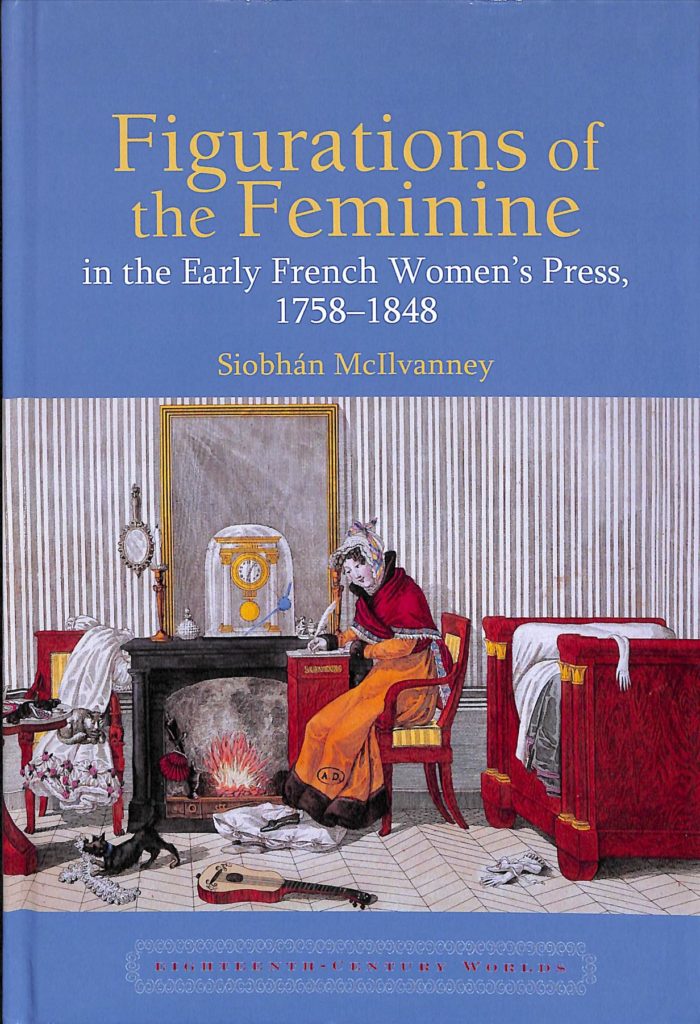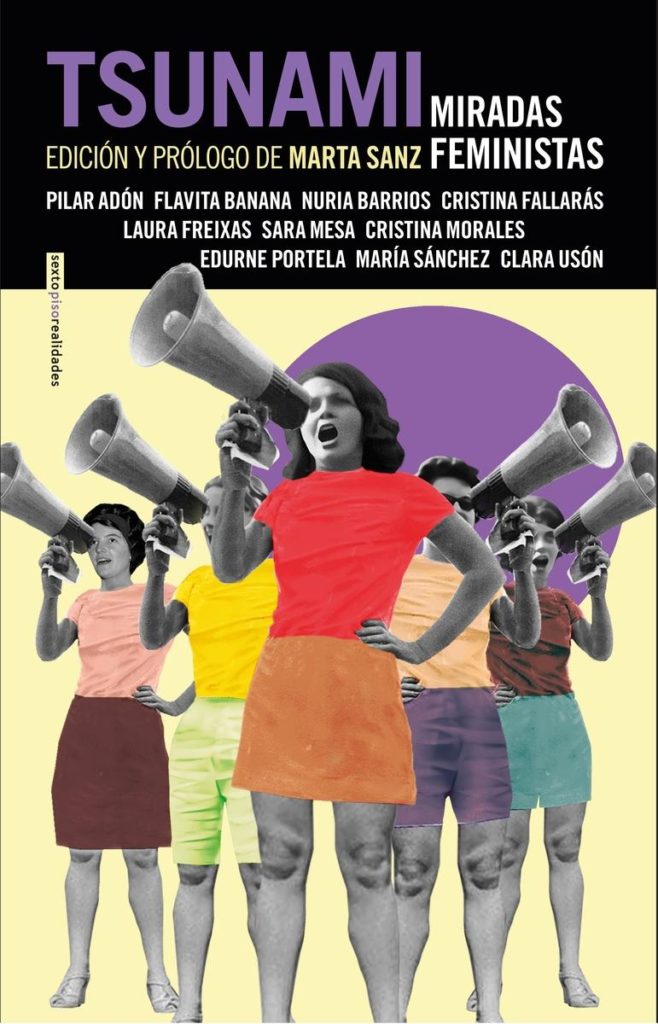

Figurations of the Feminine in the Early French Women’s Press, 1758-1848
By Siobhán McIlvanney
Publisher: Liverpool University Press
Recommended by Hélène B. Ducros
Looking at women’s self-expression through the “feminine press” during tumultuous times in France, Figurations of the Feminine fills a void in historical treatments of the crucial period between the mid-eighteenth century and the Second Republic. Advancing various reasons for this neglect in academic criticism—from disparagement to derision and disdain—Siobhán McIlvanney approaches early French women’s press not merely as a consumption object of low culture in the land of high culture, but as a non-monolithic space of subversive feminist dialogue where women negotiated their freedom from socially ascribed roles. She successfully validates the genre as a literary vehicle worthy of exploration by showing how feminocentric journals could simultaneously articulate traditional representations of the feminine while providing a forum for the circulation of ideas and the development of a counter-consciousness beyond the salons. If the book examines how early women’s press represented women’s role, it most importantly also demonstrates its transformative influence on their social and political position. McIlvanney reveals how the genre triggered the construction of a new sexual identity, gendered communities, and a trans-class womanhood resting on solidarity. Transgressing established conventions, this “sororal drive” yielded radical avant-garde mobilizations for counterhegemonic ends.
The book splendidly debunks assumptions about early women’s press as a conduit for the transmission of prescribed gender roles, the socialization of women into domesticity, or the dissemination of stereotypes soaked in patriarchal indoctrination and sexual normativity. McIlvanney’s feminist reading of selected print media poses questions about women’s self-realization at a time of great socio-political transformations. She highlights who writers, subscribers, and readers were—from elite to working-class women—as well as the socio-political context and the ideologies permeating normative gender roles. Addressing the content women were reading, she shows that fashion, beauty, crafts, marriage or domestic skills were entangled with divorce, sexuality, property, women’s rights, education, employment, and reforms about women’s role in the public sphere. Also describing women’s reactions to the representations of womanhood diffused in women’s journals, McIlvanney documents how these constituted a catalyst for intellectual encounters by autodidact women educating themselves to become “citizens.” An effective invitation to reconsider the women’s press beyond habitual pre-conceptions, the book encourages a rigorous engagement into textualities in historical context to unveil how women became actors in their liberté, égalité, and…sororité in pre- and post-revolutionary France. For anyone interested in media, communication, representation politics, and feminism, this constitutes a captivating account of an overlooked literary genre, also providing a model for studies in other places or times.

Edited by Marta Sanz
Publisher: Editorial Sexto Piso España
Recommended by Louie Dean Valencia-García
Tsunami: Miradas Feministas, includes the work of women born in Spain who are artists, writers, academics, and professionals of a variety of backgrounds. These women bring together important perspectives in this short, but powerful, volume. Edited by Marta Sanz, a professor and prestigious novelist who is winner of the Premio Herralde and finalist for the Premio Nadal, this book is both urgent and brings often theory-ridden discourse on feminism to the public sphere with eleven provocative essays. One contributor, Edurne Portela, shares the story of her grandmother, who taught her daughter, Portela’s mother, to “look for a career, find a job, not to depend on any man.” A harsh woman, Portela’s grandmother inculcated her daughter, born in 1946, to be obedient to her—telling her what to study, when to have children, and to care for her family. Portela’s exemplar shows both the later awakening of her own mother, but also her mother’s insistence to give Portela the space to make her own decisions about her life. Today, Portela’s mother has traveled Europe and America, primarily with her best girlfriend, and takes English and Tai-Chi classes. In earnest, Portela shows the slow march toward feminism by three generations of strong Spanish women, grounding that evolution in both access to education and a quest to find a “room of their own.” Menstruation, menopause, abortion, sisterhood, pornography, virginity, and revolution are carefully treated by Cristina Fallarás in her chapter “My Vulva.” Cristina Morales’ chapter, roughly translated as “Introduction to Pleasure Mediated in the Capital and Called in Favor of the Free Whore: First Notes for the Politicization of Fucking,” is both critical analysis of sexism in film and also what it means to be a “puta”—whore—and a woman. Tsunami: Miradas Feministas is nothing short of a manifesto written with clear intent and careful consideration of what it means to be a feminist today. Not only is this work a necessary read for all, it is the type of reading that does not shy away from often uncomfortable or taboo topics. Although focusing on Spanish women, this book certainly is one that will have resonance for all readers and will certainly leave its impact.




